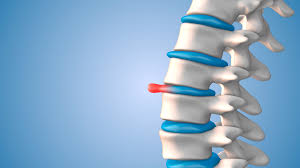Toothache is one of the most common and uncomfortable problems many people experience. The pain can start suddenly, keep you awake at night, and even make it hard to eat or talk. Understanding why it happens and how to manage it can help you find relief faster. This simple guide explains everything you need to know about toothache causes, treatments, and prevention in very easy words.
What Exactly Is a Toothache?
A toothache means you feel pain in or around your tooth. The pain may be mild, sharp, or throbbing, depending on what’s causing it. Sometimes the pain is only when you eat or drink something hot or cold, while at other times it may be constant.
Your teeth are connected to tiny nerves inside the gums and jaw. When these nerves become irritated or infected, they send pain signals to your brain, and that’s when the ache begins.
Common Reasons Why Toothaches Happen
There are many reasons why one might experience a toothache. Some of the most common include:
- Tooth decay: When bacteria eat away at the outer layer of your tooth.
- Gum disease: Infection or inflammation of the gums that support your teeth.
- Cracked tooth: Even a small crack can cause pain when you bite down.
- Loose filling or crown: A damaged dental restoration can expose sensitive areas.
- Tooth infection: When bacteria reach deep inside the tooth, causing swelling and pain.
Sometimes, even sinus infections or jaw problems can cause tooth-like pain, making it hard to identify the real cause.
Dental Care Tips to Prevent Future Toothaches
Maintaining good oral hygiene is the best way to stop toothaches before they start. Practicing smart Dental Care Tips daily can keep your teeth strong and healthy.
Here are a few easy things everyone should do:
- Brush twice a day with a soft-bristled toothbrush and fluoride toothpaste.
- Floss daily to remove trapped food between teeth.
- Use mouthwash to kill bacteria and freshen breath.
- Visit your dentist twice a year for cleaning and checkups.
- Eat healthy foods like fruits, vegetables, and dairy that support strong teeth.
Avoid chewing on hard objects like ice or pens, and reduce sugar intake. These small steps can prevent decay, infection, and the painful surprises of future toothaches.
Types of Tooth Pain You Might Feel
Not all toothaches feel the same. Understanding what type of pain you have can help you figure out what’s wrong:
- Sharp pain: Often linked to cavities or cracked teeth.
- Throbbing pain: Usually points to an infection.
- Sensitivity to temperature: May mean enamel damage or gum recession.
- Constant dull ache: Often caused by gum problems or grinding your teeth.
If the pain doesn’t go away in a day or two, you should contact a dentist to find the real cause.
Can a Toothache Cause a Headache?
Can a Toothache Cause a Headache? Yes. The reason is that the nerves in your face, mouth, and head are closely connected. When a tooth becomes infected or inflamed, the pain can spread through these nerves and create pressure in nearby areas, including your jaw, temples, and forehead.
You might also feel ear or eye pain along with the headache. If your headache gets worse when you chew, talk, or move your jaw, it’s a sign that a dental issue might be the cause. In such cases, you must visit a dentist as soon as possible because treating the tooth can also stop the headache.
How Dental Pain Connects to Head and Jaw Pressure
When the nerve inside your tooth is irritated, it sends strong pain signals that your brain can mistake for head pain. This connection is known as referred pain. One can also feel tightness in the jaw muscles, especially if the toothache is from grinding or infection.
When to Worry About Toothache-Related Headaches
You should be concerned if:
- The headache doesn’t go away after pain medicine.
- The pain increases when you bite or chew.
- Your face or jaw feels swollen.
- You notice fever, bad taste, or pus in your mouth.
These symptoms show that the tooth infection may have spread and needs urgent treatment.
Simple Home Remedies for Toothache Relief
If you can’t visit a dentist right away, there are some simple things you can do at home to reduce pain temporarily.
- Rinse with warm salt water: It helps reduce swelling and clean the area.
- Use a cold compress: Apply ice wrapped in a cloth to your cheek for 15 minutes.
- Try clove oil: Dab a few drops on a cotton ball and place it near the sore tooth.
- Take over-the-counter painkillers: Use as directed to control discomfort.
- Keep your head raised while lying down: This can lessen blood pressure in the area and reduce pain.
These remedies are only for short-term relief. You should still see a dentist to find and treat the main cause.
Natural Ingredients That Help Ease the Pain
Many people find that garlic, peppermint tea, or saltwater rinses can calm a toothache naturally. Garlic has antibacterial properties, while peppermint offers a cooling effect that soothes irritated gums.
Quick Tips to Calm Tooth Pain Instantly
You can also try avoiding very hot or cold foods, brushing gently, and staying away from sugary snacks until your tooth is treated.
When You Should See a Dentist
Sometimes, a toothache is a warning sign that something serious is happening inside your mouth.
You must see a dentist if you experience:
- Pain lasting more than two days.
- Swelling around your face or gums.
- Difficulty opening your mouth.
- Pain while chewing or swallowing.
- Bad breath or discharge near a tooth.
The dentist can examine your teeth, take X-rays, and find the real reason for the pain. In many cases, they can treat the issue on the same day.
Warning Signs That It’s Time for Professional Help
If your toothache keeps coming back, it might be due to cavities, nerve damage, or gum disease. Early dental treatment can prevent infections from spreading deeper into your jaw or bloodstream.
What a Dentist Can Do for Fast Relief
A dentist can clean infected areas, fill cavities, perform root canals, or prescribe antibiotics when needed. They will also give you advice on how to avoid pain in the future.
Daily Habits to Keep Your Teeth Pain-Free
You can build a simple routine that includes brushing after meals, drinking plenty of water, and limiting snacks. This helps stop plaque from forming and reduces your risk of cavities.
Foods and Drinks That Protect Your Smile
Calcium-rich foods like cheese, milk, and almonds can make your teeth stronger. Drinking water instead of soda also prevents acid from wearing down the enamel.
Final Thoughts on Managing Toothache Pain
A toothache might seem like a small issue, but it can become serious if ignored. Understanding the cause, trying gentle home remedies, and visiting a dentist at the right time can save you from more pain later.
Taking care of your oral health is a daily habit. With the right care, one can avoid discomfort and keep their smile bright and pain-free. Remember, prevention is always better than cure when it comes to damaged teeth.


